Tag Archives | ASEAN
Economics, Social development and protection
 Economics, Health, Regional cooperation and integration
Economics, Health, Regional cooperation and integration
 Finance sector development, Governance and public sector management, Health, Regional cooperation and integration
Finance sector development, Governance and public sector management, Health, Regional cooperation and integration
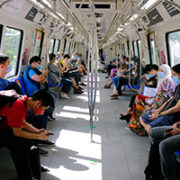 Economics, Environment, Finance sector development
Economics, Environment, Finance sector development
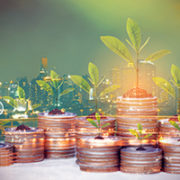 Economics, Health, Social development and protection
Economics, Health, Social development and protection
 Economics, Energy
Economics, Energy
 Economics, Industry and trade, Regional cooperation and integration
Economics, Industry and trade, Regional cooperation and integration
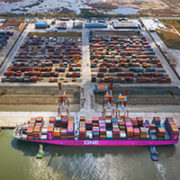 Energy, Environment, Governance and public sector management, Infrastructure
Energy, Environment, Governance and public sector management, Infrastructure
 Economics, Energy, Environment, Governance and public sector management, Infrastructure
Economics, Energy, Environment, Governance and public sector management, Infrastructure
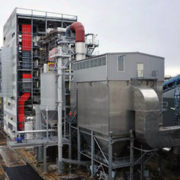 Industry and trade, Regional cooperation and integration
Industry and trade, Regional cooperation and integration
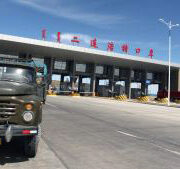
Supporting the creative economy for sustainable development in Southeast Asia

Many efforts have been made in Southeast Asia to support creative industries and boost the creative economy, realizing the ability of knowledge-based economic activities to foster income generation, job creation, and export earnings while promoting social inclusion, cultural diversity, and human development (UNCTAD 2010: 10).
Toward an ASEAN COVID-19 travel balloon

While financial markets have responded strongly to the emergency-use authorization of various coronavirus disease (COVID-19) vaccines in several countries, the economic impacts will take much longer to materialize. One reason for this is that vaccinating 60% or more of populations to achieve herd immunity will take time. Reaching herd immunity is critical given the possibility that those vaccinated may still be infectious, despite being immune to the disease.
The impacts of COVID-19 on financial stability and regional financial safety nets in ASEAN

The Association of Southeast Asian Nations (ASEAN) is making strong efforts to maintain financial stability amid the coronavirus disease (COVID-19) pandemic, mostly through national financial emergency measures for each member state. As a region, ASEAN has not yet formed a regional financial safety net to deal with a crisis like COVID-19.
Achieving policy objectives for green bonds in ASEAN

The latest Intergovernmental Panel on Climate Change report, Global Warming of 1.5 ºC, notes the importance of mobilizing green finance for limiting global warming to 1.5 degrees Celsius and preventing catastrophic climate change. In line with this, some countries have been implementing policies to support green bonds. Green bonds are debt securities whose proceeds are used to fund environmental projects, including climate change mitigation and adaptation. Therefore, unlike conventional bonds, green bonds finance projects with clear environmental benefits (ICMA 2018).
How should ASEAN and ASEAN+3 respond to the COVID-19 crisis?

The Association of Southeast Asian Nations (ASEAN) and its bigger counterpart ASEAN+3, comprising the 10 ASEAN members and the People’s Republic of China, Japan, and the Republic of Korea (ROK), have been slow to respond to the COVID-19 pandemic. While they have been strenuously ramping up their efforts, more needs to be done, and quickly. There are many things they can do immediately, such as employing their machinery to increase consultation and cooperation to curb contagion—both medical and economic—and limit beggar-thy-neighbor policies.
Economic integration and energy efficiency for energy security in ASEAN

The security of energy supply is crucial for rapid growth in Southeast Asia, but it is being increasingly challenged by the region’s fast-growing energy demand. This high demand can be explained by improvements in energy access as well as population and economic growth.
The upgraded ASEAN-People’s Republic of China Free Trade Agreement could matter, big time

In 2015, the Association of Southeast Asian Nations (ASEAN) and the People’s Republic of China (PRC) signed an Upgrade Protocol to improve the original Framework Agreement for the ASEAN-People’s Republic of China Free Trade Area (ACFTA) as well as their Agreement on Trade in Goods, Services, and Investment. The Upgrade Protocol entered into force in July 2016, and implementation will start from August 2019.
Propelling ASEAN towards clean coal technology

Coal, the most abundant and reliable energy resource, will continue to be the dominant energy source in power generation to meet the fast-growing electricity demand in the emerging economies of the Association of Southeast Asian Nations (ASEAN). The share of coal use in power generation was 32% in 2015, and this is projected to increase to 42% by 2040.
Electrifying emerging ASEAN through off-grid distributed renewable energy systems

Some 134 million people in the Association of Southeast Asian Nations (ASEAN) region do not have access to electricity (IEA and ERIA, 2013). At the end of 2015, the ASEAN Community declared that the lack of power and energy access could threaten the region’s economic growth and its economic transition.
TPP and RCEP – friends not foes

Talks just concluded in Auckland, New Zealand on Saturday show that plans for the Regional Comprehensive Economic Partnership (RCEP) are advancing. Just as both Hillary Clinton and Donald Trump, the next potential leaders of the Trans-Pacific Partnership’s (TPP) biggest partner—the US—have distanced themselves from the agreement. Some even suggest that the US Congress won’t ratify the TPP agreement, and warn that the world economy risks US isolationism.


Search
Subscribe / Connect to Asia Pathways
Subjects
- Agriculture and natural resources
- Blog
- Capacity development
- Climate change
- Economics
- Education
- Energy
- Environment
- Finance sector development
- Gender
- Governance and public sector management
- Health
- Industry and trade
- Information and Communications Technology
- Infrastructure
- Miscellaneous
- Population
- Poverty
- Private sector development
- Regional cooperation and integration
- Sanitation
- Social development and protection
- Transport
- Uncategorized
- Urban development
- Video Blog
- Water
Recent Posts
- Artificial intelligence: A new driver for inclusive growth and development?
- Increasing trust in cross-border e-commerce and artificial intelligence
- Enhancing access to maternal and newborn healthcare in developing Asia
- Can electric vehicles lead the way to a sustainable future?
- Mitigating climate-related sovereign risk to accelerate action on the climate emergency




Recent Comments